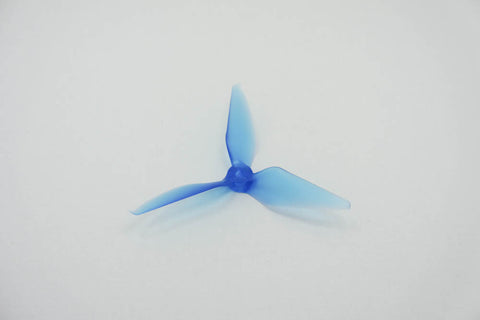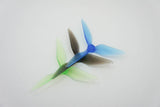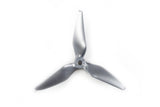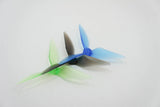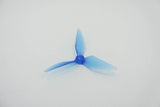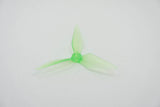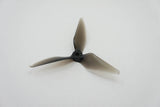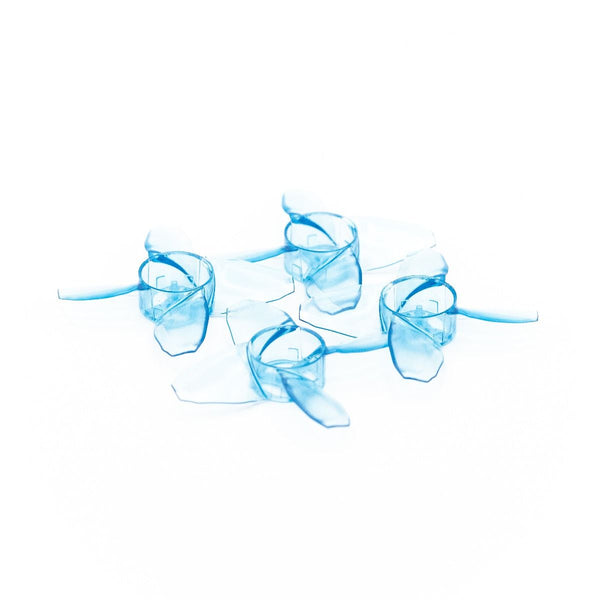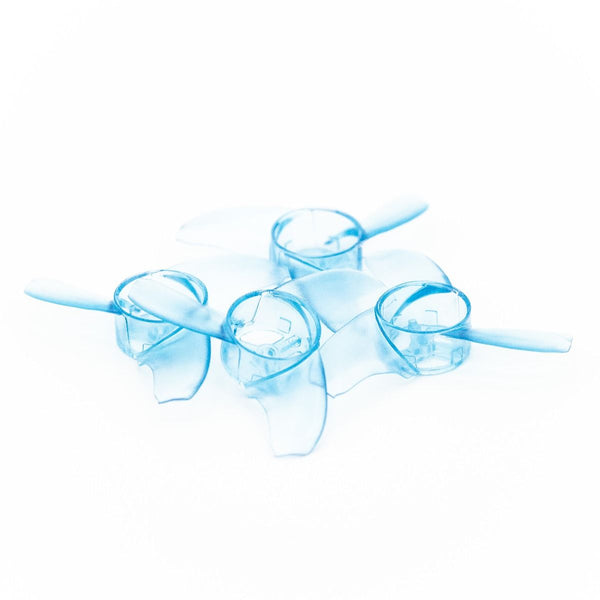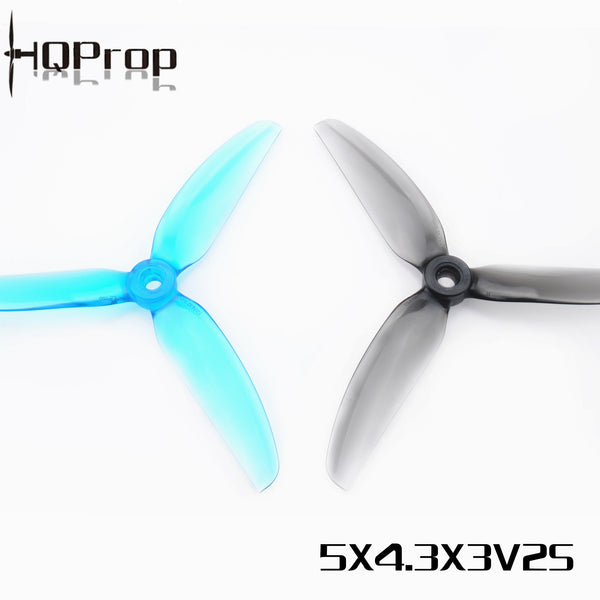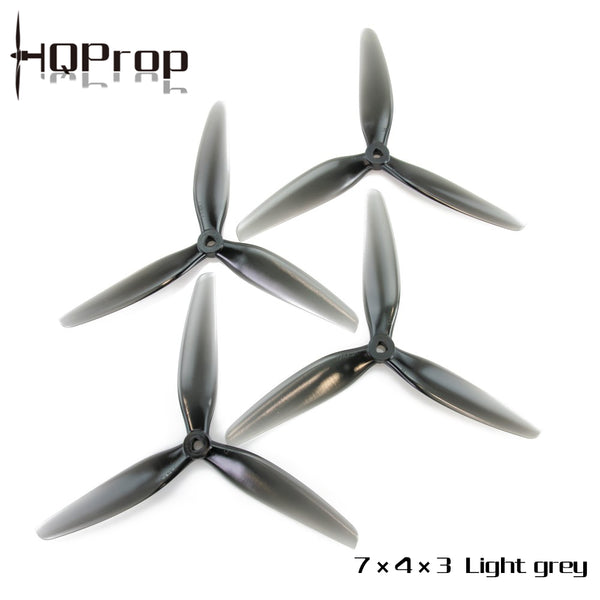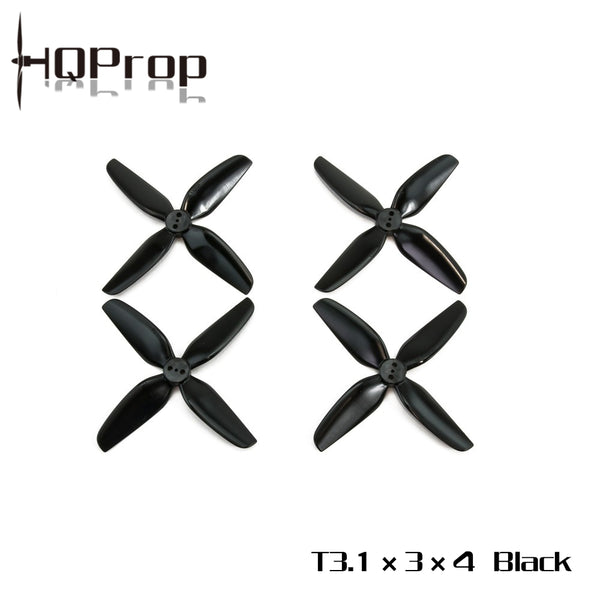RaceKraft 5051 TCS 5" 3-Blade Props
The Racekraft 5051 is designed from the ground up to maximize efficiency at high rates of speed. Custom Computational Fluid Dynamics (CFD) programs were developed to design the RK 5051. A Vortex Lattice Method was used to develop the flow around the propeller which performance estimates can be derived from. Viscous effects are accounted for using airfoil 2D section data gathered from NACA databases or derived from using 2D airfoil programs such as XFOIL. A design for maximum efficiency is ensured by manipulating blade geometry to meet the Betz condition. Betz condition requires each shedding vortex at each station along the blade needs to shed off as a perfect helical screw. This condition allows convergence on one blade geometry for one design point. Our CFD program takes in inputs to produce the geometry of the propeller. These inputs are speed of the multirotor, RPMs, Power, angle incidence with the flow, number of blades, and diameter. The optimum geometry from the program is then inputted into a CAD software and a 3D solid model is drawn.
This design process allows us to design propellers optimum for certain use cases. The RK 5051 is design for the multirotor racer. This use needs a fast propeller with control up at high rates of speed. A Racer’s propeller also needs to be extremely durable and not break when hitting other racers in the air or gates to stay in the air longer. The RK 5051 is designed to operate at 60 mph at 40 degree incidence with the flow at roughly half throttle with a 2205 - 2206 2300kv motor.
The number 5051 is derived from the propellers diameter (5.0”) and the propellers advance ratio (J = 0.51) which gives us 5051. Advance ratio is used over conventionally used static pitch since static pitch is rather meaningless in the design process. Advance ratio is the ratio of the speed the multirotor is moving at to the tip speed of the propeller. The design is optimum to a specific advance ratio, in this case 0.51. This tells the user the intended use case of the propeller. Higher advance ratios will be optimum for faster flying scenarios vs a low advance ratio will be optimum for lower speed flying. Static pitch changes throughout the blade of the RK 5051 and at 75% radius it is 4.4”.
The RK 5051 will give you the power, control, and durability you need to win a race.

